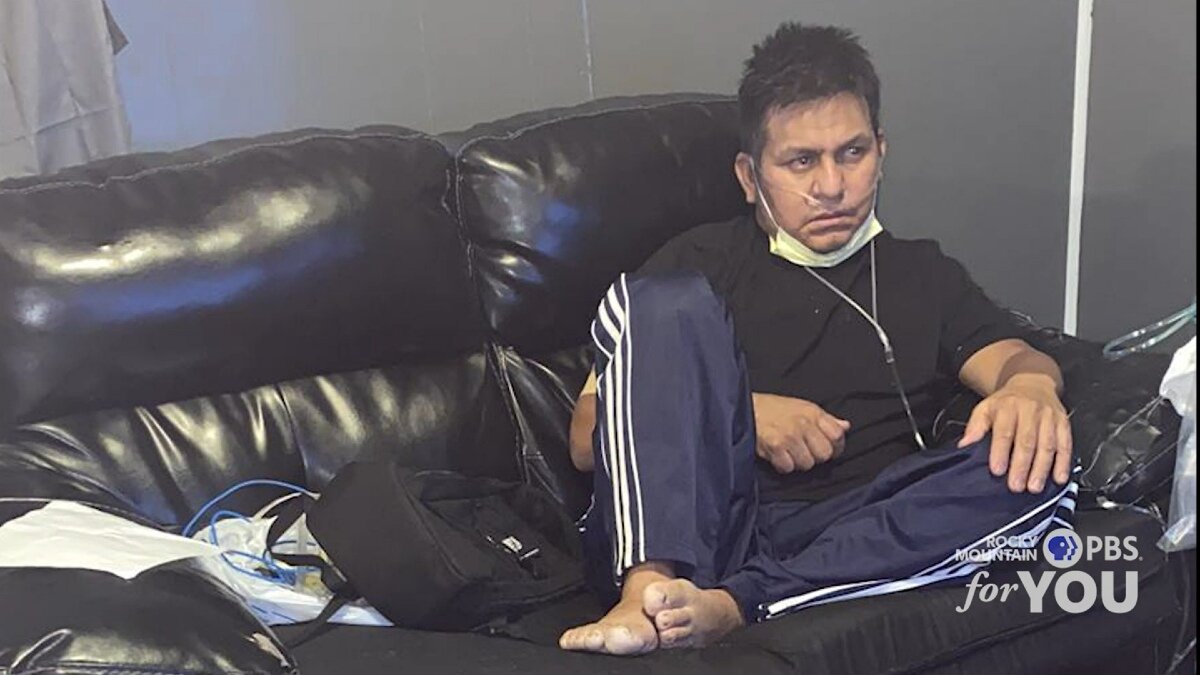After 24 days in the hospital, Durango family faced $180k medical bill

DURANGO, Colo. — If you come near Ana and Isaac’s home in Durango, you’ll probably hear a lot of children laughing.
The couple lives with their five grandchildren, all under the age of eight, and Ana cares for five children from other families to help pay the bills.
Ana immigrated to the United States 25 years ago. Rocky Mountain PBS agreed not to share her and her husband’s last names due to their legal status.
The couple’s busy home turned upside down in November when Isaac, an essential worker, began showing symptoms of COVID-19.
Soon Ana, their son, and two grandkids were sick too. In total, the couple spent 24 days in the hospital and accumulated a $180,000 bill.
To this day, Ana and Issac are still on oxygen, which they only use at night because they say replacing the canisters is too expensive.
Ana says her husband is constantly worried someone will pick him up and take him to jail. Ana reminds him he’s not the only one in this situation. She’s right: the pandemic has left many Americans in debt.
Centura Health, Colorado's largest hospital network, wants people to remember there is hope.
Rocky Mountain PBS was able to connect one of Centura’s financial officers with Ana’s family. So far, they’ve cut the medical debt from $180,000 to $30,000, according to the family.

Still, Ana’s case reflects the unequal impact of COVID-19 on our nation, where minorities like Ana are contracting and dying from COVID-19 at much higher rates.
Liane Jollon is the Director of San Juan Basin Public Health. She says, “everything you do in community to earn your paycheck, to get your child educated — all those now put at risk eight other people and that’s kind of this exponential impact that has been really hard to understand and address.”
This is why Jollon says it’s really important we talk about the disparate impacts the pandemic has had on our society.
“We’re not all positioned equally when we’re facing a crisis,” she said.
The risk of contracting COVID-19 is directly related to the vulnerable social conditions that immigrant families are often forced to live in. In Ana’s case, she is constantly around more than 10 people and the people in her circle are essential workers, making it virtually impossible to quarantine from the virus.
Jollon says it’s the responsibility of public health agencies like San Juan Basin Health to understand these circumstances and work with them.
As for Ana, she understands people who fail to take the pandemic seriously, because that’s where she was before her family got sick. She now warns others of the consequences she’s living with.
This story is the second in a series focused on the disproportionate impacts of COVID-19 on Latino families in Durango, Colorado. It is part of The Long Haul, a Rocky Mountain PBS project focused on the long-term impacts of the pandemic. The first story in the series can be found here.
Benjamin Waddell helped produce this story. Waddell is an associate professor of sociology at Fort Lewis College in Durango, Colorado. He is a father, husband, writer, professor, and advocate for social justice. He is a contributing writer for HuffPost, High Country News, The Conversation, and The Week.